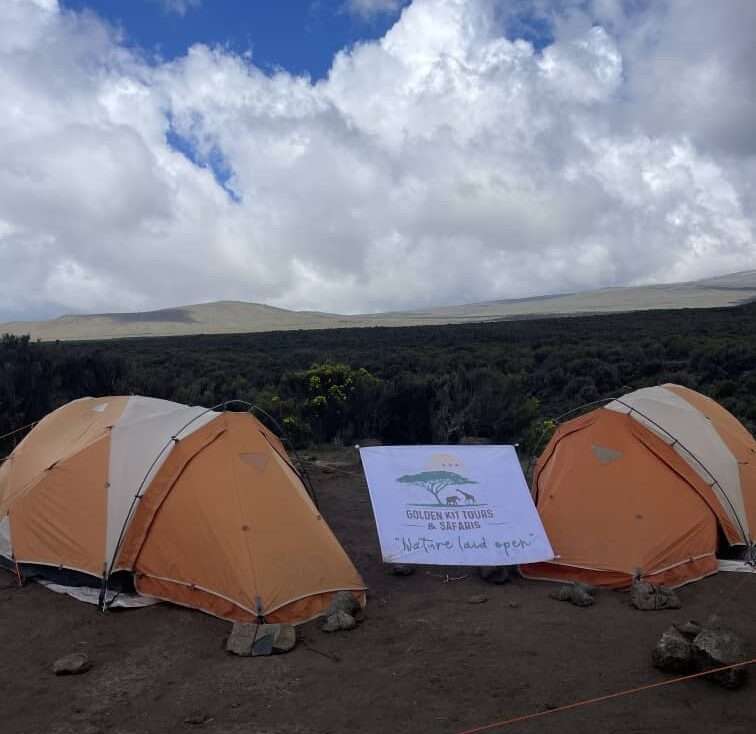How long does it take to climb Kilimanjaro?
Learn about the days taken to reach the summit of Kilimanjaro.
Climbers often inquire about the duration required to summit Mount Kilimanjaro.
The journey to reach the Mount Kilimanjaro Summit and descend to the endpoint typically spans between five to nine days. Spending more days on Mount Kilimanjaro increases the likelihood of a successful summit because it allows for better acclimatization to the altitude and reduces fatigue.
Those spending only five days have the lowest success rate in reaching the summit. Conversely, trekkers who opt for an eight or nine-day itinerary significantly improve their chances of achieving the summit.

Factors influencing the duration of climbing Kilimanjaro
Mount Kilimanjaro is classified as a “walk-up” mountain, implying that it doesn’t require technical climbing skills. The duration it takes to reach the summit largely depends on how well you acclimatize to the reduced oxygen levels at higher altitudes.
Acclimatization
Failing to reach Kilimanjaro’s summit is often due to inadequate acclimatization to the altitude.
The key obstacle to conquering the summit is acclimatization if you’re committed to completing the climb.
The positive aspect is that adopting a slower pace and allowing your body to gradually adapt to the oxygen-deprived environment is beneficial.
The longer you spend acclimatizing on the mountain, the higher the likelihood of reaching the summit. Climbers who spend only five days on Kilimanjaro have the least success rate, whereas those opting for eight or nine days significantly increase their chances of standing atop the Roof of Africa.
The Wilderness Medical Society Practice Guidelines for the Prevention of Acute Altitude Illness suggest that regulating the pace of ascent in terms of the elevation gained each day is highly effective in preventing altitude-related illnesses.
A gradual and consistent ascent permits your body to acclimate to the altitude. While physical fitness does not notably impact acclimatization, it allows ample time for rest and recuperation after each day’s hike.
Recent data from the Kilimanjaro National Park is not readily available. However, in 2006, estimates of success rates based on the duration spent on the mountain were evident:
- 27% of those choosing the 5-day trek reached the summit.
- 85% of trekkers spending 8 days on their ascent were successful.
While these figures might have improved due to better guidance, upgraded equipment, and enhanced knowledge of trail hiking, they underscore the importance of pacing oneself during the climb.
Being exceedingly fit does not necessarily correlate with improved acclimatization. While physical fitness makes trekking easier, reduces fatigue and stress, it does not directly impact acclimatization.
According to Dr. Hackett from the Institute for Altitude Medicine, physical fitness does not shield individuals from altitude sickness. Sometimes, despite experiencing discomfort, many young, fit individuals might push forward, disregarding critical symptoms.
What is the duration to climb Mount Kilimanjaro via each route?
There are a total of six diverse routes available for ascending Mount Kilimanjaro.
The quickest paths to reach the summit are the Marangu or the Umbwe Route. These options allow completion within 5 days (although generally not recommended for most hikers).
The longer expeditions—Lemosho, Machame, Rongai, or Northern Circuit routes—usually span between 6 to 10 days.
Opting for a lengthier route primarily aims to facilitate acclimatization to the altitude. However, there are additional factors to consider.
Attempting to cover the same distance in a shorter period, unless one is exceptionally fit, might elevate the risk of fatigue and injury. Such hurried endeavors could potentially compromise the overall enjoyment of the natural environment during the climb.

Golden Kit Tours and Safaris recommends Trekkers who have a flexible schedule to consider a longer route or build-in one or two acclimatization days and have an easier time reaching the summit.
Each route is varied in the duration on the mountain, the types of accommodation, the level of difficulty, the type of scenery, and other factors.
The table below lists each route, sorted by the number of days usually taken on each route.

Is a 5 or 6-day Kilimanjaro climb worth considering?
Certainly, climbing Kilimanjaro in five or six days is feasible and appealing to many clients. The allure of shorter routes typically revolves around:
- Cost-effectiveness
- Limited vacation duration
- Avoidance of an extended trek
- Despite these attractions, based on Golden Kit’s extensive expertise as mountain guides and organizers, we firmly advocate for a longer, more gradual ascent. This approach substantially enhances our clients’ summit success rates and, importantly, ensures safety.
Moreover, granting oneself ample time to appreciate the unique mountain environment while allowing for adequate rest and recuperation significantly enhances the overall trekking experience.
Kilimanjaro Duration: Important Considerations
Here are key questions to ponder upon:
- How would it feel to select a minimum-duration route, only to face the need to turn back on day three due to an excessively rapid ascent without enough time to acclimatize?
- Wouldn’t extending the trip by a couple of days provide a better chance at reaching the summit and afford your body a more comfortable pace?
- Were the cost savings worth risking cutting the climb short, missing the summit, or potentially jeopardizing your health?
Opting for a shorter climb might be only suitable if:
- You’ve recently experienced high altitudes, such as successfully climbing Mt. Meru or Mt. Kenya, potentially providing some pre-acclimatization.
- You possess extensive climbing experience in extreme altitudes (>18,000ft) and have confidence in your acclimatization abilities.
- It’s an undeniable fact that longer routes significantly elevate summit success rates.
How Long Does Kilimanjaro Descent Take?
Descending from Uhuru Peak Summit to the Finish point on Kilimanjaro usually spans about two days. The descent duration can range from around 5 hours to reach the camp for an overnight stay and approximately 4 to 6 hours the following day, contingent upon the chosen route and trekkers’ experience level.
We are here to make sure that you have the best experience of climbing Kilimanjaro, let us get on a call to discuss your physical capabilities and decide on the suitable duration for you.

